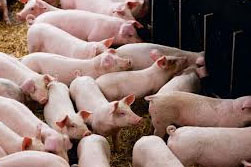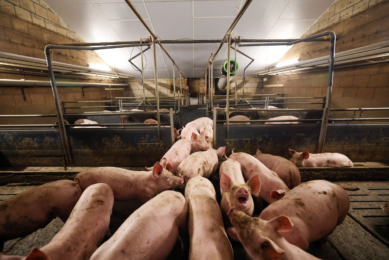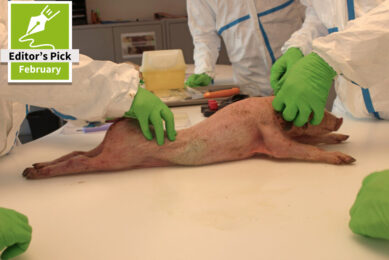CFIA cannot confirm feed as possible cause of PED outbreak

Scientific testing by the Canadian Food Inspection Agency (CFIA) cannot confirm a link between feed containing blood plasma and Porcine Epidemic Diarrhoea (PED) cases in Canada.
As reported on February 18, the CFIA conducted a bioassay study on US-origin porcine blood plasma used in feed pellets produced by Grand Valley Fortifiers.
The study demonstrated that the porcine blood plasma in question contained PED virus capable of causing disease in pigs. However, the study could not demonstrate that the feed pellets containing the blood plasma were capable of causing disease.
In line with our commitment to science, the Agency will continue to analyse feed and feed ingredients, as well as epidemiological information gathered during the investigation, in order to verify that CFIA controls continue to protect Canadian livestock. In addition, the CFIA will examine any new lines of enquiry related to feed that may emerge, in particular from ongoing testing in Canada and the US.
In response to the positive test results in porcine blood plasma, the CFIA:
- activated its National Emergency Operations Centre (NEOC) to coordinate the feed investigation;
- followed up with farms that received the affected feed to confirm the voluntary withdrawal was effective;
- provided science-based guidance on disposing of potentially affected feed;
- worked closely with US officials to confirm that none of the affected plasma was shipped to other pig feed manufacturers in Canada
The CFIA’s investigation also included sampling and testing of feed, plasma and other feed ingredients from various Canadian and US sources associated with farms in Canada on which PED has been detected. All test results on these samples were negative for PED.
The feed investigation was triggered on February 9, after Ontario Ministry of Agriculture and Food (OMAF) testing found that US-origin porcine blood plasma used in feed pellets produced by Grand Valley Fortifiers contained PED virus genetic material. As a precautionary measure, Grand Valley Fortifiers voluntarily withdrew the potentially affected feed pellets from the marketplace.
Samples of both the feed pellets and the porcine blood plasma ingredient were submitted to the CFIA’s National Centre for Foreign Animal Disease (NCFAD) for further testing. It was confirmed that both the blood plasma and the feed pellets contained PED virus genetic material; however, the bioassay study was required to confirm if this genetic material could cause illness in pigs.
PED can spread rapidly through contact with sick animals, as well as through people’s clothing, hands, equipment, boots, and other tools contaminated with the faeces of infected animals. Therefore, considering the characteristics of PED virus and how it spreads, adhering to good biosecurity protocols remains the best measure to prevent further introduction or spread of this disease in Canada.











